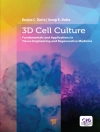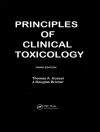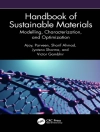Glutamine is the most abundant amino acid and is a major contributor to whole body nitrogen metabolism and is considered to be “conditionally essential.”
Glutamine in Health and Disease presents the application of current nutritional knowledge by physicians and dietitians and incorporates emerging fields of science and important discoveries. Section 1 covers glutamine structure and function, glutamine synthetase, glutamine binding protein, glutamine transport, glutamine-rich activation domains and transcription, glutamine transaminase and cell biochemistry. Section 2 covers glucose-independent glutamine metabolism, intestinal barrier function, thyroid-stimulating hormone, glutamine resonances, focal ischemia, plasma glutamine, metabolic stress, cancer and absorption. Section 3 covers dipeptide-bound glutamine, DNA protection, oxidative stress, NF-KB, the inflammatory response, the lung, kidney, GI tract and liver, autophagy, ethanol and diabetes. Finally, Section 4 covers the use of glutamine in preoperative states, enteral and parenteral nutrition, pulmonary infections, cancer, hypoxic injury, arginyl-glutamine, paediatrics, pancreatic surgery, the elderly, gastric emptying gastric bypass and use glutamine cocktails. Written by authors of international and national standing, leaders in the field and trendsetters,
Glutamine in Health and Disease is essential reading for nutritionists and dietitians, public health scientists, physicians, epidemiologists, policy makers, and health care professionals of various disciplines.
विषयसूची
Part I. Basic Processes at the Cellular Level and in Animal Models.- 1. Glutamine structure and function: a starter pack.- 2. Amino acid transporters and glutamine.- 3. Role of glutamine transaminases in nitrogen, sulfur, selenium and 1-carbon metabolism.- 4. Glutamine uptake and immunomodulation: an overview – Kenneth Frauwirth.- 5. The role of glutamine and glutamic acid in the pituitary gland involvement in thyroid-stimulating hormone release.- 6. Glucose-independent glutamine-driven TCA cycle in cancer cells.- 7. The role of glutamine synthetase in the glutamine independence in mammary tissue.- 8. Glutamine addiction of cancer cells.- 9. L-[5-11C]-glutamine and metabolic imaging in cancer cells.- 10. Endotoxemia and glutamine.- Part II. Glutamine Use in Critically Ill Patients and Their Diagnosis.- 11. Plasma glutamine and its levels in metabolic stress.- 12. Glutamine supplementation in major surgery and intensive care.- 13. Enteral nutrition supplemented with L-glutamine in patients with sepsis.- 14. Glutamine supplementation in multiple trauma patients.- 15. Glutamine dipeptide and insulin sensitivity in critically ill patients.- 16. Potential for glutamine supplementation in critically ill children.- 17. Glutamine and ammonia in hepatic encephalopathy.- 18. The oral glutamine challenge in liver cirrhosis.- Part III. Glutamine in Normal Metabolism and under Surgical Stress.- 19. Insulin secretion and the glutamine-glutamate-alpha-ketoglutarate axis.- 20. Glutamine-cycling pathway in metabolic syndrome: Systems Biology-Based Characterization of the glutamate-related metabotype and advances for Diagnosis and Treatment in Translational Medicine.- 21. Glutamine and glucagon-like peptide-1 response.- 22. Glutamine pretreatment and surgery for cleft lip/cleft palate in children.- 23. Use of perioperative glutamine dipeptide in parenteral nutrition in surgical hospital patients with malnutrition.- 24. Therapeutic use of glutamine for diabetic foot ulcers and related conditions.- Part IV. Clinical Aspects of Glutamine in the Intestine.- 25. Glutamine protects GI epithelial tight junctions.- 26. Glutamine therapy in colitis models.- 27. Glutamine supplementation and Helicobacter pylori infection.- 28. Small intestinal hypoxic injury and use of arginyl-glutamine dipeptide: applications to pediatrics.- 29. Dipeptide-bound glutamine and the intestinal microcirculation in cancer.- Part V. Clinical Aspects of Glutamine in Certain Patient Populations.- 30. Manganese toxicity and the glutamine-glutamate cycle.- 31. Glutamine and epilepsy.- 32. Glutamine supplementation in glutamine synthetase deficiency.- 33. Plasma antioxidants and glutamine supplementation in HIV.- 34. Glutamine, total antioxidant systems and damage in renal ischemia reperfusion injury.- 35. Protection by glutamine after ischemia/reperfusion injury.- 36. Glutamine and cancer immunosuppression.- 37. Combining exercise with glutamine-supplementation in cancer cachexia metabolism.- 38. Glutamine and skeletal muscle.- 39. Glutamine and myostatin expression in muscle wasting.- 40. Web based resources, and suggested readings.












